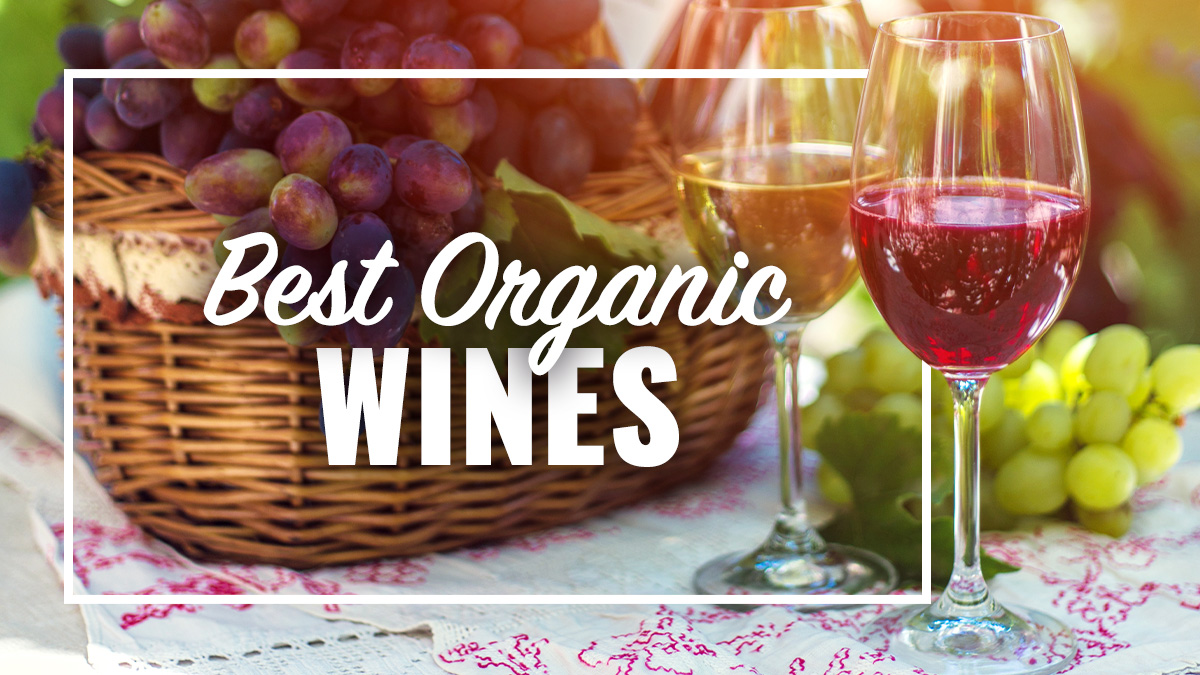
In the past few years, demand for organic products has had an unprecedented surge and the world of wine is no exception. Organic wines, made from grapes grown without synthetic chemicals and pesticides, have popularized among the wine community, from environmentally conscious drinkers and wine enthusiasts alike. In today’s blog, we’ll dive into the compelling world of organic wines, exploring what makes them unique, their environmental benefits, and why they are worth trying.
What Makes a Wine Organic?
Organic wines are cultivated from grapes that follow strict organic farming practices. Here are some characterizations of organic wines:
Organic Farming Practices
Organic vineyards prioritize the use of natural, sustainable farming methods including: avoiding pesticides, herbicides, and synthetic fertilizers. Instead, organic grape growers prioritize natural pest control methods to maintain healthy vineyards.
Certification
To be considered “organic,” both the vineyard and winery must adhere to organic farming and winemaking practices.
Minimal Sulfite Use
Organic winemakers limit the use of sulfites in their wines. While sulfites are a common preservative in winemaking, organic wines have lower sulfite levels compared to conventional wines.
What Are The Environmental Benefits of Organic Wines?
Organic vineyards are especially beneficial to the environment because they encourage biodiversity by creating a habitat for various plants, insects, and animals. By working to create a balanced and sustainable ecosystem, these vineyards reduce the need for chemical intervention to control pests.
Organic farming prioritizes soil health through the use of cover crops, compost, and reduced soil disturbance. Healthier soil is best for retaining water, preventing erosion, and sequestering carbon – all of which are crucial aspects of sustainable agriculture.
By avoiding synthetic chemicals, organic vineyards significantly reduce the risk of chemical runoff into nearby water sources. This helps protect aquatic ecosystems and contributes to cleaner water.
Organic vineyards often have a lower carbon footprint compared to conventional vineyards. This is due to reduced energy consumption associated with the production and application of synthetic chemicals.

What is the Process for Making Organic Wine?
Organic winemaking extends beyond the vineyard; it involves a thoughtful and eco-conscious approach in the winery. Many organic winemakers prefer hand harvesting to ensure that only the healthiest grapes are selected. Though laborious, doing this reduces the risk of damaged grapes and minimizes the need for machinery. Additionally, some organic winemakers opt for natural fermentation, relying on indigenous yeast strains present on grape skins and in the winery. This approach can contribute unique flavors and character to the wine.
But the organic practices don’t stop there for many organic wineries. Some makers also use eco-friendly packaging options, such as lightweight glass bottles, recycled labels, and natural corks.
The Flavors of Organic Wines
Organic wines are often celebrated for their vibrant flavors. The absence of synthetic chemicals and minimal interference in the winemaking process can lead to unique and expressive taste profiles. Many organic wines exhibit subtle earthy and floral notes that are not overshadowed by chemical residues or artificial additives. This can make for a more complex and nuanced tasting experience. The natural farming practices employed in organic vineyards often result in grapes with balanced acidity, which can provide a refreshing and harmonious quality to the wine.

Where is the Best Organic Wine Made?
Organic vineyards can be found all over the world, from traditional European wine regions to right here in the US.
Bordeaux, France
Bordeaux, one of the most renowned wine regions in France, has slowly started transitioning to organic practices. Producers are embracing sustainability, while also preserving Bordeaux’s rich winemaking heritage.
Napa Valley
Napa Valley has long been considered a trailblazer in winemaking methods. With this, there have been many wineries to embrace organic and biodynamic farming. Many prestigious wineries are adopting eco-friendly practices to craft world-class organic wines.
Marlborough, New Zealand
New Zealand, known for its stunning landscapes, is home to organic vineyards in regions like Marlborough. Organic Sauvignon Blanc and Pinot Noir from this area offer a unique taste of the country’s terroir.
Douro Valley, Portugal
Portugal’s Douro Valley, famous for its Port wines, has begun to move toward organic farming. This practice is helping to create outstanding organic red and white wines in this historic region.

What Are Good Organic Wines?
And now, for our recommendations. So many options to choose from at Spec’s, but the below recommendations represent the best of the best when it comes to organic wine.
The Neal vineyards sit at approximately 1,800 feet in elevation surrounded by vineyards, hillside pine trees & oak forests. They are committed to producing natural organic wines using sustainable organic farming practices in Napa Valley’s Howell Mountain and Rutherford Dust. This 2021 Napa Valley Cabernet Sauvignon, one of their current releases, is balanced and elegant, showcasing the impeccable purity of the fruit in a beautifully poised vintage, from the vineyards to the wine.
Syrah, Grenache, Mourvèdre, Carignan and Marselan. On the nose, profound and vibrant, with notes of blackberries and crisp blackcurrant. On the palate, generous and greedy. Smooth, harmonious tannins in red berries, and liquorice. A mineral finish that contributes to the balance of the wine.
23 miles inland from the seaside city of Pescara, Cristiana, Tiberio’s Pecorino vines, planted in 2000, are amongst the oldest in the region. The Pecorino made here is a complex, full-bodied, herbal wine. With some peach and lots of sage and rosemary, backed up with bright, uplifting citrus, this is an absolutely perfect pairing for seafood, roast chicken or grilled pork.
Deep straw in color with aromas of lemon curd and fresh-cut melon. Crisp nectarine, honeysuckle and wet stone flavors mingle with subtle mineral notes. This lovely wine leaves your palate feeling bright and refreshed. The certified organic grapes for this wine were hand-harvested from the Redwood Valley Vineyards in early September 2022.
This wine is a representation of Malbec in the most natural form. Bright and intense, with fruity notes of plums and fresh red fruits prevail. Mouth, fresh and clean entry, juicy and round due to its sweet tannins. Casa de Uco lies tucked against the foothills of the Andes Mountains. This lovely unoaked Malbec comes from its certified organic vineyards, which are 1300 meters above sea level. The high elevation helps to maintain a fresh acidity in the grapes
Borgoluce Valdobbiadene Prosecco
Ideal for any time of day or occasion, this prosecco is impressive for its generous, delicate aroma, full of hints and pleasant notes of exotic fruit. The harmony and elegance of the taste are completed by a surprising sensation of softness and tanginess. Borgoluce only vinifies its own grapes and all of their wines come solely from their sustainable vineyards. Their goal is to produce some of the finest organic Prosecco in Italy.
Chateau Cheval Brun Grand Cru Saint Emilion
The Cheval Brun Grand Cru is delightfully fruit-forward with aromas of blackberry, cherry, leather, and tobacco. The palate is bursting with ripe cherry, smoke, tea, and leather. The palate is moderate with smooth tannins, good acidity, and a strong finish. This wine, while drinking great now, will age for over a decade from now.
Momo Marlborough Sauvignon Blanc
This sauvignon blanc is made from grapes without synthetic pesticides, fertilizers and herbicides in the vineyard & certified in the country of origin. Made from estate and some purchased grapes, the wine is treated and vinified the same way as the estate’s top cuvées. The fruit is hand-picked, hand-sorted and naturally fermented, with a minimum of intervention from the winemaker.
Organic wines are not just a wine trend, but an environmentally-responsible approach to winemaking. As consumers become more aware of the impact of their choices on the planet, organic wines are becoming an increasingly attractive option. Whether you’re a seasoned wine enthusiast or new to the world of wine, tasting organic wines can be a delightful journey into the harmony between nature and winemaking.




